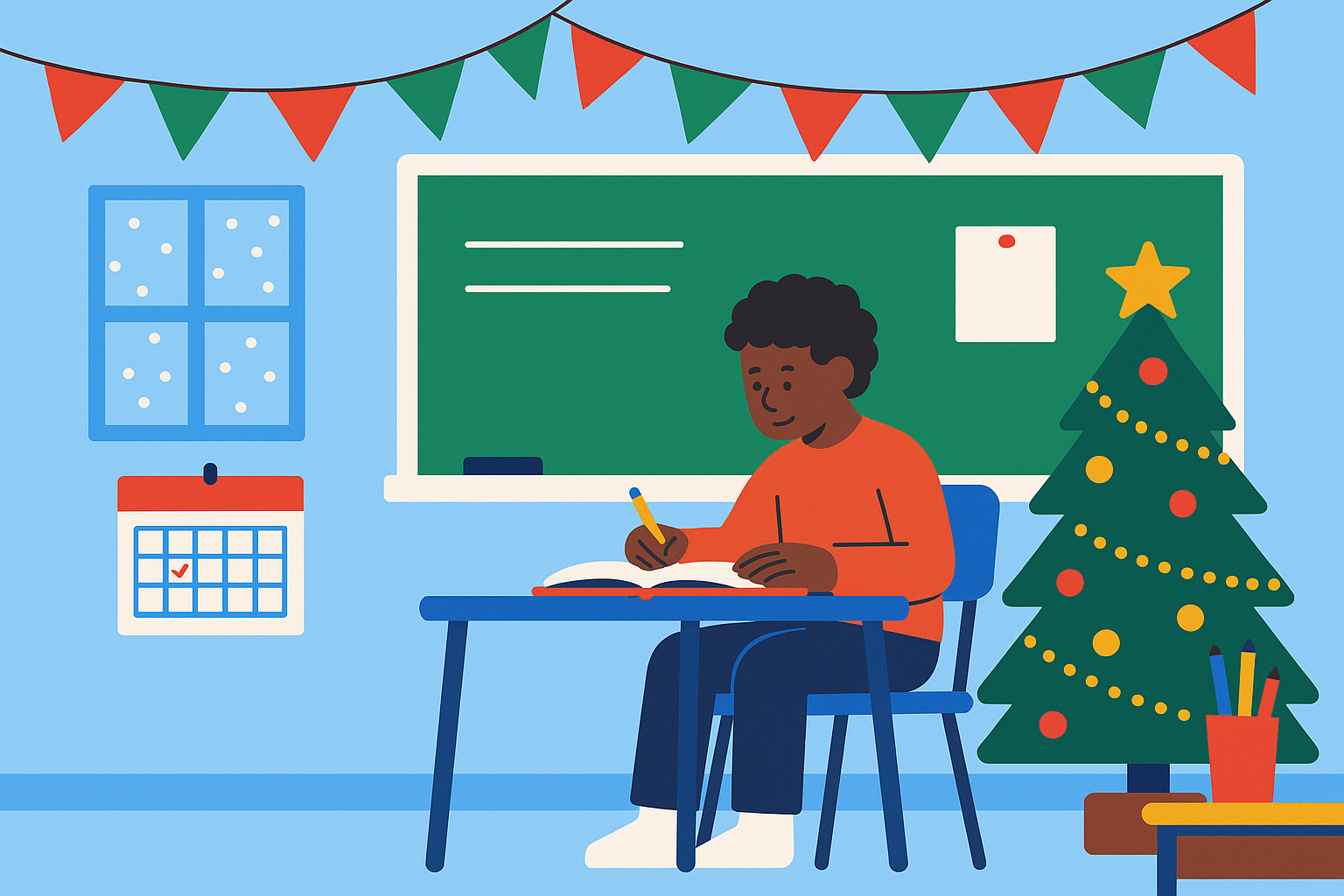As parents invest in tools to support their adolescents’ agency, how are they preparing themselves for change? Learn the importance of maintaining a balanced, adaptable approach—neither over-involving nor withdrawing—and creating a supportive environment tailored to each developmental stage.
Parents continually face the intellectual and emotional challenge of deciding how much to be involved in their child’s schoolwork. At times, it can be tempting to move from being very hands-on to very hands-off. Perhaps the student is starting high school, and it seems like the right time to “back off” and allow for more independence. But is this decision based on the child’s current needs or societal markers that may not directly pertain to their individual development?
Two familiar narratives often arise:
– My child is about to start high school. It is time for me to let them be independent and figure it out on their own.
– My child is about to start high school. This is a transitional time, and I will be more involved in their homework to ensure they get off to a good start.
Is one of these statements more accurate than the other? Of course not. There are many variables at play, and an all-or-nothing approach rarely fits either the student or the parent. Rather, a facilitatory environment is essential for children’s emerging maturity and autonomy. A facilitatory space provides the tools and resources to support growth at any given stage; essential to this growth is the learner’s “readiness” to face challenges. Are they ready to build the next skill, use it consistently, self-advocate, take a risk, make a mistake, or leave their comfort zone? Readiness, often described as maturity, largely depends on emotional regulation and emerging executive functioning skills.
As we ask whether our children have what they need, we must also ask if we, as parents, have the emotional tools to support them. This is where parent emotional regulation becomes critical. Do we have a plan—and the flexibility to adjust it—as our children move through adolescence? Neither extreme, hands-on or hands-off, serves best. The challenge lies in navigating the “in-between,” where adolescents are less dependent yet face increasingly complex challenges. So how do we adapt at home to support building teen independence?
Foundational to Uluru’s research-backed framework is that a mindset facilitating growth requires an emotionally “cool” setting (Rabin et al., 2011). In other words, when parents model calmness rather than high emotional charge, they better support children in task initiation, completion, and skill development. Yet given the pace of modern life, the pressures of education, and our desire to help our kids succeed, maintaining emotional regulation can feel nearly impossible. Without strategies and support, parents may slip into extremes—over-involvement or disengagement.
Over-involvement can lead to conflict, exhaustion, and learned helplessness, while withdrawing too quickly can leave adolescents unprepared for real challenges. The right balance allows parents to support their child in making the “right kind” of mistakes—those that foster growth rather than feelings of defeat. These are moments where students learn resilience, build problem-solving skills, and grow their emotional strength—key aspects of building teen independence.
Supporting children in reaching this point is nuanced. Independence is not achieved at a specific age or stage; it evolves over time through self-reflection and adult guidance. We often emphasize scaffolds for students, but parents also need scaffolds—emotional and practical—to maintain balance. Here, parental emotional regulation again plays a central role. Like the airplane oxygen mask analogy, we must secure our emotional stability before effectively supporting our children.
Marc Brackett, the founding director of the Yale Center for Emotional Intelligence, recently discussed “reappraisal” in Time magazine (Brackett, 2025). Reappraisal is an emotional regulation strategy that helps adolescents and adults reframe a situation, reducing emotional intensity and improving outcomes. Practicing reappraisal enables parents to model the same skills they want their adolescents to develop: calm thinking, measured responses, and adaptability. This modeling strengthens the parent-child dynamic and reinforces the foundation for building teen independence.
Pausing to reappraise a stressful moment can be transformative. Instead of reacting to a child’s panic about an upcoming test, a parent might think: “My 10th grader is stressed, but this is an opportunity to help them use the tools they already have.” This reflective stance builds emotional resilience—for both parent and teen.
As parents strive to operate between overreaction and underreaction, we must acknowledge that readiness—ours and our children’s—is both mental and emotional. Practicing parent emotional regulation not only supports the adolescent’s executive functioning but also creates an emotionally safe environment where independence and resilience can flourish.
In practice, this may mean accepting short-term discomfort for long-term gain. A lower grade on one quiz may feel disappointing, but using the experience as an opportunity to reappraise and model calmness reinforces perseverance. It teaches adolescents to tolerate discomfort and recover from setbacks—key ingredients in building teen independence.
Ultimately, moments of tension or struggle become opportunities to practice regulation, reflection, and problem-solving. When we model this, our children learn that success is not defined by perfection, but by persistence and emotional strength. Through parental emotional regulation, we raise adolescents who not only develop independence but also carry a deep belief in their capacity to handle life’s challenges with confidence and resilience.
References
Brackett, M. (2025, September 21). The Overreaction Epidemic—and What to Do About It. TIME; Time. https://time.com/7317137/the-overreaction-epidemic/
Hoffmann, J. D., De France, K., Seibyl, J., Orleck-Jetter, R., Gualda, R. C., & Brackett, M. A. (2023). The role of originality, distancing, and tentative language in effective cognitive reappraisal among adolescents. Thinking Skills and Creativity, 49, 101377.
Zvara, B. J., Macfie, J., Cox, M., & Mills-Koonce, R. (2018). Mother–child role confusion, child adjustment problems, and the moderating roles of child temperament and sex. Developmental Psychology, 54(10), 1891.


